The cost of soundproofing your car varies based on factors such as materials, labor, and desired noise reduction. We will break down these components and outline cost-effective approaches to achieve effective soundproofing without breaking the bank.
How Much Does It Cost to Soundproof a Car?
Typically, soundproofing a car involves applying sound-deadening mats to doors, floor, and roof, along with using soundproof spray on the bonnet or trunk head. This process is usually priced between $600 to $800 in total.
How to Soundproof a Car?
In a world where noise pollution can take away from the joy of driving, soundproofing your car has become an attractive solution for achieving a quieter and more enjoyable ride.
Whether you’re aiming to reduce road noise, engine rumble, or external disturbances, soundproofing can make a significant difference. Below, are the process of soundproofing your car.
Assessing Your Needs and Goals
Before diving into the soundproofing process, it’s essential to assess your specific needs and goals. Identify the sources of noise that bother you the most – is it the rumble of the engine, the clatter of road noise, or external sounds seeping in?
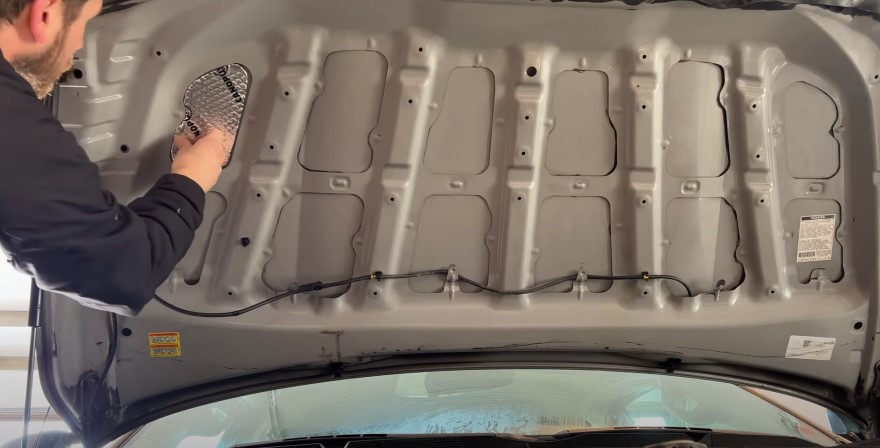
Understanding your priorities will help you tailor your soundproofing efforts to address these particular issues.
Choosing the Right Materials
One of the fundamental aspects of soundproofing a car is selecting the appropriate materials. Sound-deadening mats, made from materials like rubber, foam, or asphalt, are typically applied to various surfaces within the car, such as doors, floors, and roofs.
These mats work by absorbing and dampening sound vibrations, thus reducing noise transmission.
Applying Sound-Deadening Mats
Once you’ve gathered the necessary materials, it’s time to apply the sound-deadening mats. Start by removing the interior panels of the doors, floor, and roof. Clean the surfaces thoroughly to ensure proper adhesion.
Cut the mats to fit the specific areas and press them firmly onto the surfaces. The mats not only reduce noise but also improve insulation, helping to maintain a comfortable cabin temperature.
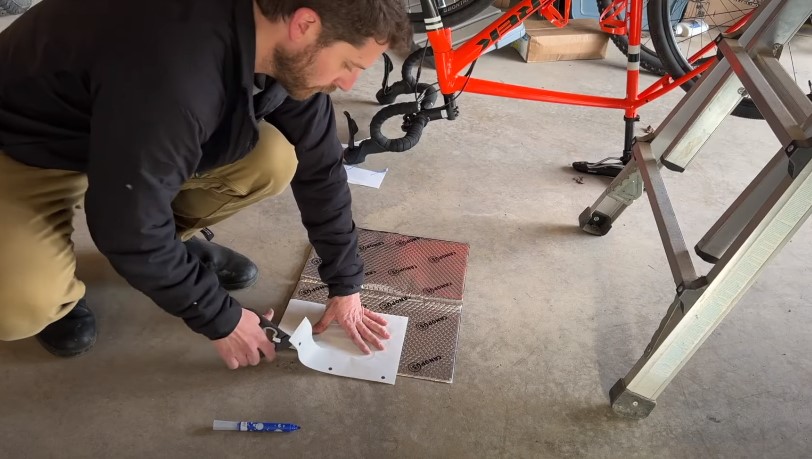
Targeting Specific Areas
While mats are effective for large surfaces, certain areas require specialized treatment. The bonnet and trunk head are prime examples, as they’re exposed to engine and road noise.
To address this, consider using soundproofing spray or adhesive mats specifically designed for these spaces. The spray creates a barrier that reflects and absorbs sound waves, further enhancing the overall soundproofing effect.
Sealing and Insulating Gaps
Effective soundproofing isn’t just about adding materials; it’s also about sealing gaps that allow noise to penetrate. Inspect your car for gaps around windows, doors, and other openings.
Weatherstripping and sealants can help eliminate these gaps, preventing noise from entering the cabin. Additionally, check for any gaps in the firewall and floor, as these areas can also contribute to noise leakage.
Upgrading Sound System and Tires
While soundproofing materials primarily target external noise, upgrading your car’s sound system and tires can complement your efforts. High-quality tires with good noise-reduction ratings can significantly reduce road noise.
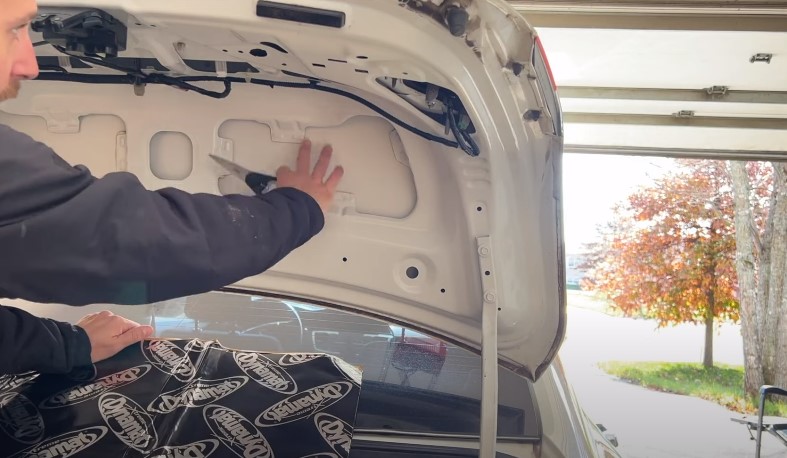
Upgrading your sound system can provide better audio quality, allowing you to enjoy music without turning up the volume to drown out external noise.
Professional Assistance Versus DIY
Deciding between professional installation and a DIY approach depends on your skills, time, and budget. While professionals ensure precise application, a well-informed DIY approach can yield satisfactory results.
Research thoroughly, follow installation guidelines, and take your time to achieve the desired outcome.
What Are the Benefits of Soundproofing a Car?
In the realm of vehicular comfort and enjoyment, soundproofing your car emerges as a transformative solution. Beyond the functional aspect of reducing noise, soundproofing brings a host of benefits that elevate your driving experience to new heights.
Below are the multifaceted advantages of soundproofing your car, ranging from improved comfort to enhanced vehicle value.
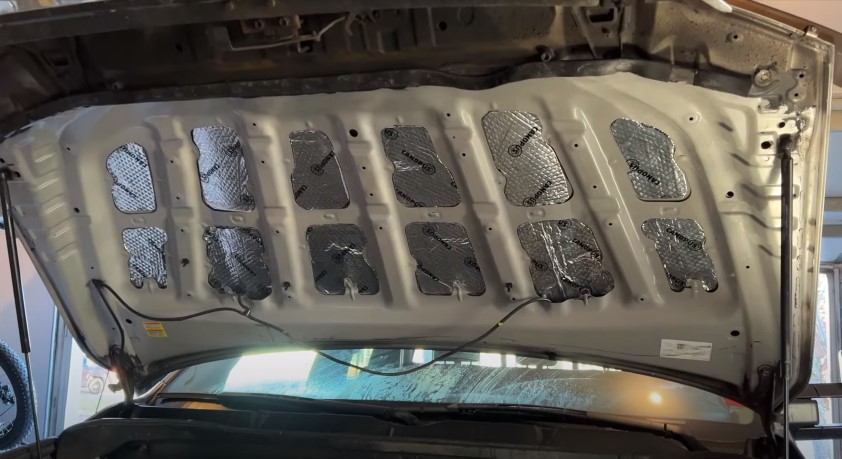
Reduced Noise Intrusion
The most apparent benefit of soundproofing is the remarkable reduction in noise intrusion. Unwanted external noises, be it the drone of traffic, the clatter of construction, or the howl of wind, are significantly muted.
The cabin becomes a serene haven where you can converse effortlessly, enjoy music intricately, and experience tranquility, making your journey all the more pleasurable.
Enhanced Audio Quality
With external noise subdued, the audio quality within the car cabin undergoes a noteworthy transformation. Whether you’re a fan of soothing melodies or heart-thumping beats, a soundproof car provides an optimal acoustic environment.
Music comes alive with crisper sound reproduction, allowing you to relish every note and lyric without the need to overpower the noise with high volume.
Optimized Privacy
Soundproofing contributes to the realm of privacy, transforming your car into a cocoon of confidentiality. Engage in private conversations without the fear of eavesdroppers, making business calls, personal discussions, and heartfelt exchanges more secure.
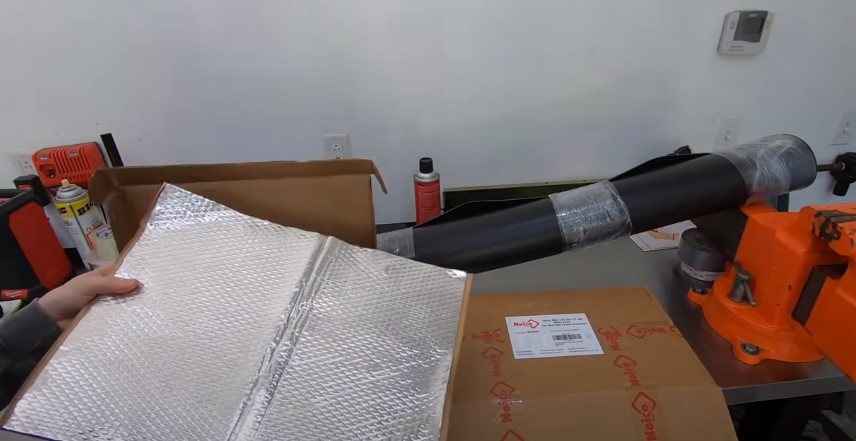
The sense of intimacy and personal space within the car is augmented, adding a layer of exclusivity to your driving experience.
Fatigue Reduction
The continuous barrage of external noise during drives can lead to driver fatigue and increased stress levels. Soundproofing curtails these adverse effects, creating a calmer and more relaxing atmosphere.
Long journeys become less taxing, as the strain caused by persistent noise exposure is mitigated. A relaxed driver is a safer driver, contributing to overall road safety.
Temperature and Climate Control
Beyond noise reduction, soundproofing materials [1] also provide enhanced insulation. These materials have properties that aid in temperature regulation within the cabin.
During scorching summers or chilly winters, soundproofing helps maintain a comfortable interior climate. This reduction in temperature fluctuations not only adds to passenger comfort but also supports the car’s overall energy efficiency.
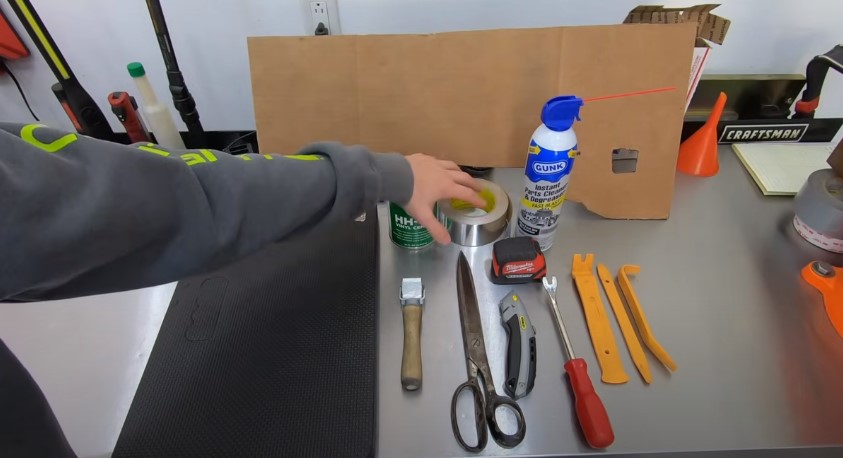
Increased Vehicle Value
Soundproofing isn’t merely an investment in comfort; it’s an investment in the value of your vehicle. A well-insulated, quiet, and comfortable cabin becomes a selling point when it’s time to upgrade or sell your car.
Prospective buyers appreciate the enhanced driving experience, making your vehicle stand out in a competitive market and potentially increasing its resale value.
Reduced Wear and Tear
External vibrations and road noise can accelerate wear and tear on your car’s components, particularly the suspension and interior panels. Soundproofing mitigates these impacts by reducing vibrations that propagate through the chassis.
This results in a longer lifespan for various parts, minimizing maintenance costs and ensuring your vehicle remains in top-notch condition.
What Affects the Cost of Soundproofing a Car?
Soundproofing a car is a practical means to create a quieter and more enjoyable driving experience. The cost of this endeavor, however, is influenced by a multitude of factors that go beyond a one-size-fits-all estimate.
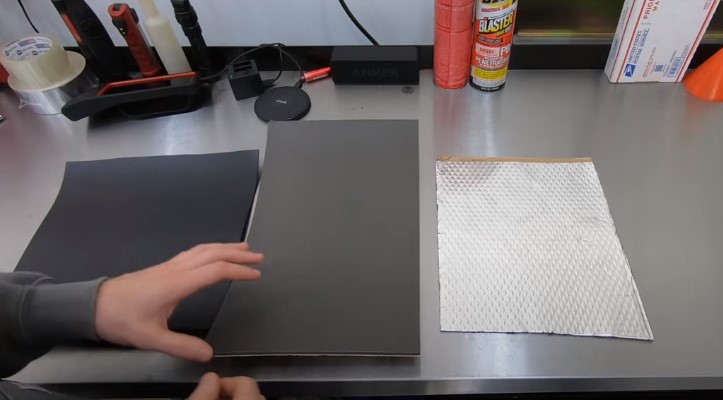
Below are the elements that impact the cost of soundproofing a car, from the choice of materials to the complexity of installation.
Choice of Materials
The selection of soundproofing materials is a primary determinant of cost. High-quality materials, such as premium sound-deadening mats and specialized soundproofing sprays, tend to come with a higher price tag.
While these materials offer superior noise reduction and durability, more budget-friendly alternatives exist that still provide effective results. The choice between quality and affordability shapes the overall cost of the soundproofing project.
Extent of Soundproofing
The scope of your soundproofing project significantly influences the cost. Are you aiming to address noise in specific areas, like doors and floor, or do you plan to comprehensively soundproof the entire cabin?
A partial project targets key noise sources, while a comprehensive approach involves treating all noise-vulnerable areas. The more extensive the project, the greater the materials and labor required, impacting the final cost.
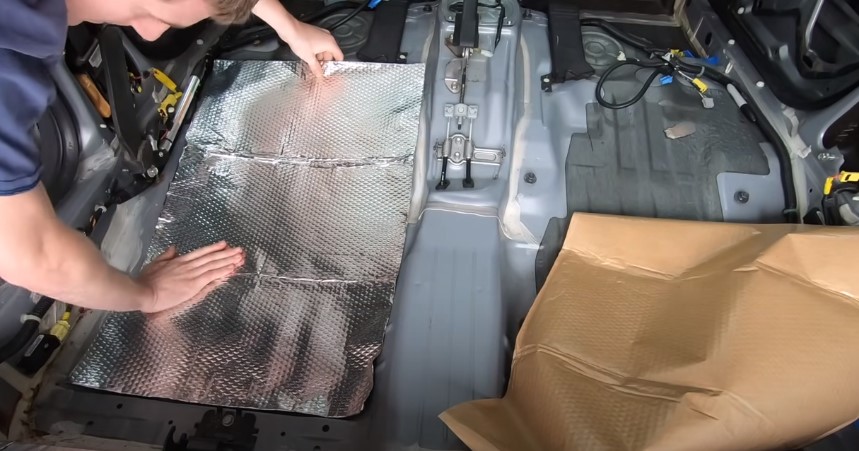
Labor Costs
The decision to embark on a do-it-yourself (DIY) soundproofing project or hire professionals introduces a significant cost variable. While DIY projects can save on labor expenses, they require time, skill, and meticulous attention to detail.
Professional installation ensures precise application, but it comes with labor fees. Weigh the pros and cons of both options to determine the cost-efficiency and effectiveness that align with your goals.
Vehicle Complexity
The complexity of your car’s interior structure plays a role in soundproofing costs. Vehicles with intricate interior designs may require more time and effort to properly apply soundproofing materials, increasing labor costs.
Additionally, cars with irregular shapes or hard-to-reach areas can pose challenges during installation, potentially affecting the overall cost of the project.
Additional Components
While the primary focus of soundproofing is noise reduction, addressing other components like sealing gaps and enhancing insulation contributes to the cost equation.
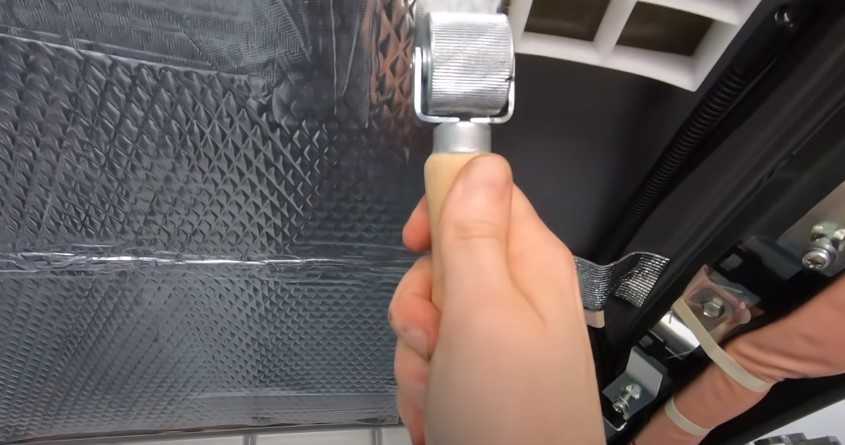
Investing in quality weatherstripping, sealants, and insulation materials further enhances the soundproofing effect and adds to the overall expenses. However, these additional components can provide a well-rounded solution that maximizes comfort and noise reduction.
Aftermarket Versus Factory Soundproofing
Consider whether your car has any existing factory-installed soundproofing features. Some vehicles come with basic sound insulation, while others offer premium soundproofing packages as an optional upgrade.
Retrofitting aftermarket soundproofing materials onto a car with minimal factory insulation may require more effort and materials, impacting the final cost.
Customization and Aesthetics
Customization and aesthetics can also influence the cost of soundproofing. If you opt for specialized materials, colors, or patterns to match your car’s interior, expect an increase in expenses.
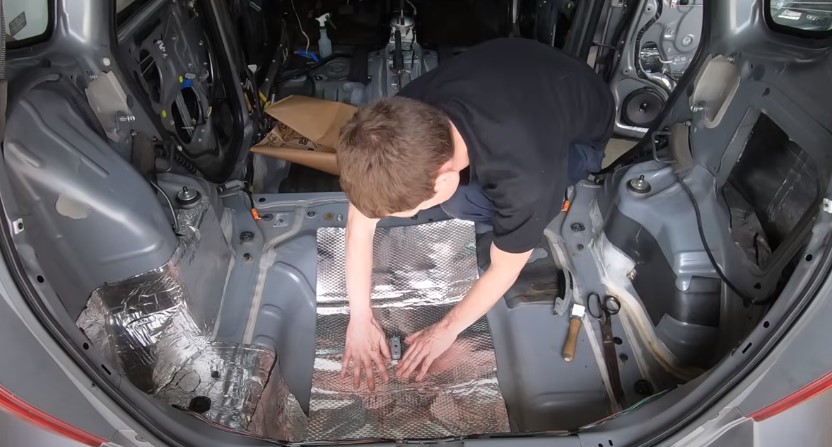
While these personalized touches enhance the visual appeal, they can contribute to higher material costs.
Conclusion
In the realm of car soundproofing, costs vary due to factors like materials and extent of work. Balancing quality and budget ensures an effective solution. By understanding these influences, you can make an informed decision for a quieter and more enjoyable driving experience.

